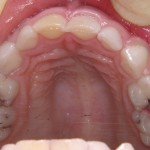
Extensive decay in primary teeth remains an all too common problem often requiring pulp treatment as part of its management. Reviews have suggested that mineral trioxide aggregate (MTA) shows better outcomes than other materials although Biodentine a more recently developed calcium silicate cement has demonstrated good outcomes.
The aim of this review was to compare the clinical and radiographic success of Biodentine compared to MTA
Methods
Searches were conducted in the PubMed, Lilacs, Cochrane, Embase, Scopus, Web of Science, CINAHL, EBSCO, and Clinical trials databases. Randomised controlled trials (RCTs) comparing pulpotomy in primary teeth using Biodentine versus MTA were considered.
Study selection and data extraction and risk of bias assessment was carried out independently by two reviewers. The Cochrane Collaboration tools was used to assess risk of bias. The main outcomes were clinical and radiographic success. Risk ratios (RR) and 95% confidence intervals (CI) were calculated. Meta-analysis was performed for the success rate of Biodentine versus MTA at three time points (6, 12, and 18 months).
Results
- 9 studies were included.
- 2 studies were considered to be at high risk of bias, 1 at low risk and the remainder to have unclear risk of bias.
- No differences were found between the clinical and radiographic success rates at any of the 3 time points tested.
| Clinical success rates
Risk ratio (95%CI) |
Radiographic success rates
Risk ratio (95%CI) |
|
| 6-month | 0.99 (0.96-1.02) | 0.96 (0.92-1.00) |
| 12-month | 1.01 (0.97-1.04) | 0.98 (0.92-1.05) |
| 18-month | 0.97 (0.92-1.02) | 1.00 (0.91-1.10) |
Conclusions
The authors concluded: –
There is no superiority of one material over the other (MTA or Biodentine). This result suggests the potential of Biodentine as pulpotomy medicament in primary teeth. Further randomized clinical trials of good quality, greater sample size, and longer follow-up time are necessary in order to confirm the results presented.
Comments
The recently published Cochrane review (Dental Elf – 8th June 2018) looked in detail at a wide range of pulp treatment techniques for the management of extensive decay in primary teeth. They found that the evidence suggested that MTA may be the most efficacious medicament and that further research should be undertaken on Biodentine enamel matrix derivative, laser treatment or Ankaferd Blood Stopper to confirm if they were acceptable second choice.
The current review searched a broad range of databases and compares Biodentine and MTA. It includes the four RCTs included in the Cochrane review adding 5 more with the results suggesting no difference in clinical and radiographic success at 6, 12 and 18months between the two medicaments. The authors highlight that not all of the studies provided data at all time points with only 6 trials providing data at 12 months and 3 trials at 18 months. Fewer that 500 patients have been included in the studies to date so additional well conducted and reported trials involving larger sample sizes and of longer duration would be helpful.
Links
Primary Paper
Stringhini Junior E, Dos Santos MGC, Oliveira LB, Mercadé M. MTA and biodentine for primary teeth pulpotomy: a systematic review and meta-analysis of clinical trials. Clin Oral Investig. 2018 Sep 20. doi: 10.1007/s00784-018-2616-6.[Epub ahead of print] PubMed PMID: 30238414.
Other references
Dental Elf – 8th June 2018

In addition to all of the other problems that come with extensive interproximal decay is mesial migration of teeth into the areas where proximal enamel has been lost. The resultant arch length loss can compromise succedaneous tooth eruption in the buccal segments.